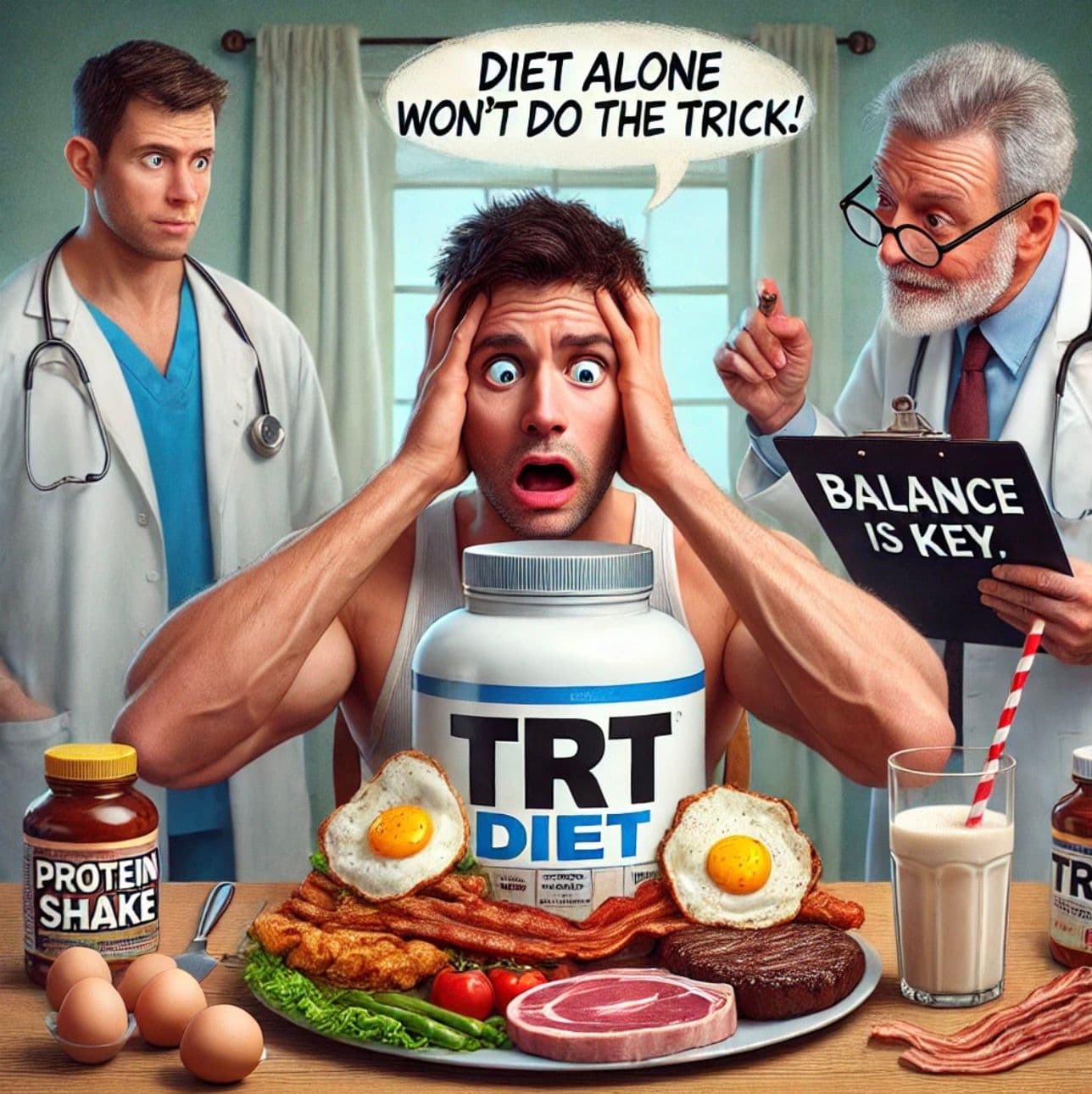5 Biggest Myths About TRT – Busted!
Published on:
Updated on:

People are asking...
Can you explain why a peptide or secretagoge is better than the real thing - actual HGH? Is it just a price or availability thing?...
The benefits of a secretagoge over HGH is price, availability, and fewer side effects. Also legality. Actual HGH is one of the most regulated medicines in the US, where off-label prescribing of HGH fo... See Full Answer
Do you offer peptides and if so can you talk a little bit about which ones you offer and the possible benefits?...
We do, though they are more tightly focused than a full on peptide provider. This is because we can only work with peptides that are available from pharmacies & approved for human consumption. Our mai... See Full Answer
Do you think any other compounds that are available for medical use in other countries in the past or currently like primobolan or paranolan can becom...
Regulations change almost monthly, so you never know. It would likely take a large study showing significant benefit in order to change the FDA’s and DEA’s mind on medicines like Primobolan. Even then... See Full Answer
Have a question? Ask us.
At AlphaMD, we're here to help. Feel free to ask us any question you would like about TRT, medical weightloss, ED, or other topics related to men's health. Or take a moment to browse through our past questions.
Testosterone Replacement Therapy (TRT) gets a bad rap thanks to outdated science, gym bros spreading half-truths, and straight-up misinformation. Let’s clear the air and separate fact from fiction.
1️⃣ TRT is Just for Bodybuilders
Nope! TRT is for men (and women!) dealing with low testosterone, not just those trying to look like action movie villains. It’s about optimizing energy, mood, metabolism, and overall health—not just biceps.
2️⃣ TRT Will Make You Angry & Aggressive (a.k.a. ‘Roid Rage’)
The only thing TRT might make you angry about is why you didn’t start sooner. Low testosterone is more often linked to irritability and mood swings. When balanced properly, TRT can actually help stabilize mood and reduce stress.
3️⃣ TRT Ruins Your Natural Testosterone Forever
This one sounds dramatic but isn’t true. Yes, TRT suppresses natural testosterone production while you’re on it, but that’s because your body doesn’t need to make as much when it's getting enough externally. With proper medical guidance, natural production can be restored if you choose to stop.
4️⃣ TRT Will Magically Fix Everything Overnight
TRT isn’t a Red Bull—it won’t give you wings instantly. It takes time for your body to adjust, and results come gradually. Think of it like a gym membership: consistency is key.
5️⃣ TRT is Only for Older Guys
Testosterone levels can start dropping as early as your 30s. Fatigue, brain fog, weight gain, and low libido aren’t just "part of getting older"—they could be signs of low T. No matter your age, if your levels are low, you deserve to feel your best.
Bottom Line: TRT isn’t about shortcuts, gym myths, or Hollywood hype—it’s about health. If you’re dealing with symptoms of low T, don’t guess—get tested! AlphaMD makes it easy with online consultations and meds delivered straight to your door. See if TRT is right for you!
Have a question? Ask us.
At AlphaMD, we're here to help. Feel free to ask us any question you would like about TRT, medical weightloss, ED, or other topics related to men's health. Or take a moment to browse through our past questions.
People are asking...
Can you explain why a peptide or secretagoge is better than the real thing - actual HGH? Is it just a price or availability thing?...
The benefits of a secretagoge over HGH is price, availability, and fewer side effects. Also legality. Actual HGH is one of the most regulated medicines in the US, where off-label prescribing of HGH fo... See Full Answer
Do you offer peptides and if so can you talk a little bit about which ones you offer and the possible benefits?...
We do, though they are more tightly focused than a full on peptide provider. This is because we can only work with peptides that are available from pharmacies & approved for human consumption. Our mai... See Full Answer
Do you think any other compounds that are available for medical use in other countries in the past or currently like primobolan or paranolan can becom...
Regulations change almost monthly, so you never know. It would likely take a large study showing significant benefit in order to change the FDA’s and DEA’s mind on medicines like Primobolan. Even then... See Full Answer
Get $30 off your first month’s order
Enter your email address now to receive $30 off your first month’s cost, other discounts, and additional information about TRT.
Legal Disclaimer
This website is a repository of publicly available information and is not intended to form a physician-patient relationship with any individual. The content of this website is for informational purposes only. The information presented on this website is not intended to take the place of your personal physician's advice and is not intended to diagnose, treat, cure, or prevent any disease. Discuss this information with your own physician or healthcare provider to determine what is right for you. All information is intended for your general knowledge only and is not a substitute for medical advice or treatment for specific medical conditions. The information contained herein is presented in summary form only and intended to provide broad consumer understanding and knowledge. The information should not be considered complete and should not be used in place of a visit, phone or telemedicine call, consultation or advice of your physician or other healthcare provider. Only a qualified physician in your state can determine if you qualify for and should undertake treatment.
